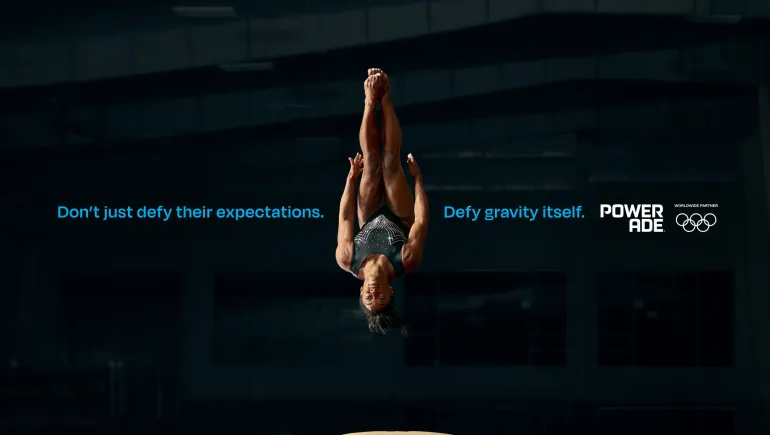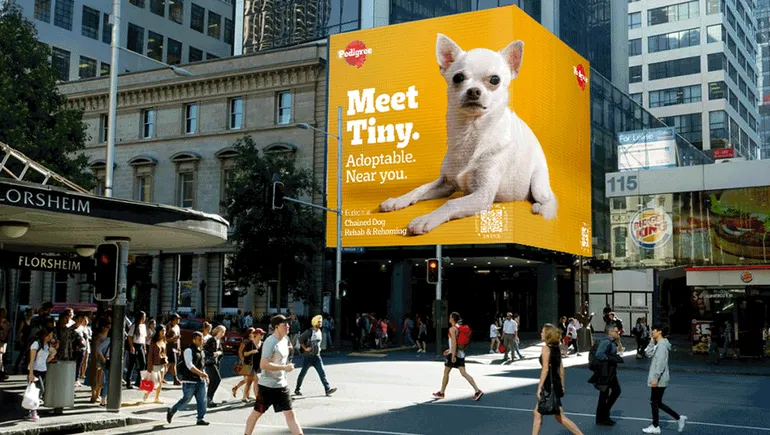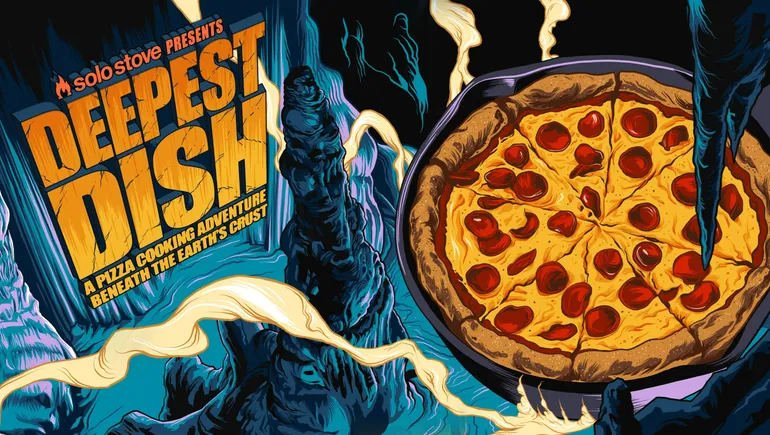
Checkers & Rally's CMO on 'crunching' 2020 and being nimble in the new year
As quick-service and fast casual restaurants rushed to make their businesses COVID-friendly in 2020 — and get the word out through marketing — Checkers & Rally’s was already prepared. The chain of nearly 1,000 restaurants is drive-thru only, and with its in-house marketing team, managed to thrive despite pandemic-related challenges.
“We’re very fortunate and we’re going to finish a record year. I suspect, when everything is said and done, our sales comps will be in the high single digits,” executive vice president and chief marketing officer Dwayne Chambers said. (After this interview, the chain’s parent company announced a $20 million capital injection from a private equity firm which will be used to fuel its five-year growth plan.)
Dwayne Chambers
Courtesy of Checkers & Rally’s
Chambers, the chain’s CMO since 2019, has extensive experience in the QSR space, including stints at Krispy Kreme, Fuddruckers, Noodles & Company and Sonic Drive-In. He explained how Checkers & Rally’s was able to market during contentious times, how his in-house team works and why the brand closed out the year with a monster truck event.
This interview has been edited for clarity and brevity.
MARKETING DIVE: One of the big questions that emerged in 2020 and looks to stick around in 2021 is how to market and message with so many simultaneous crises, from the pandemic to the push for racial justice and beyond. How is Checkers & Rally’s approaching this?
DWAYNE CHAMBERS: We’ve really tried to be mindful and conscientious … we have millions of people who have gotten ill, we’ve got hundreds of thousand of people who have died. I’m reminded of after 9/11, when “Saturday Night Live” decided to come back on the air, and I remember Lorne Michael saying, “Hey, is it okay for us to laugh?” Is it okay? They had to get to a place where we move on. We still need to relate with one another, we still need to have the ability to laugh. And that doesn’t take anything from being respectful to people who have had heartaches and hard times.
As things happen, we monitor that each day to make sure we’re not being inappropriate given whatever the news of the day is, but also knowing that people still need to hug their families, they still need to eat, they still have jobs.
How do these concerns affect the brand’s online voice, which can tend toward the type of competitive sparring common between QSRs?
CHAMBERS: One of the things that’s interesting about our brand is we’re in a lot of neighborhoods that other QSRs don’t go into. We’re opening restaurants in parts of town that other QSRs are getting out of, and we have this mindset that we’re hard-working people who serve hard-working people. While the rest of the restaurant industry has said, “we’re going to target household incomes with, you know, $75,000,” our household income’s probably closer to $40,000. And that’s okay because those people are working hard, and those people are making the country keep going, and we just love to embrace that.
We look at who we are and try to be who we are, and while we might poke a little fun here and there, we don’t try to make fun of anybody for being who they are either, right? You know, they can do whatever they need to do, we’re just going to focus on the best we can be of who we are.
How has having an in-house marketing team helped you meet this environment?
CHAMBERS: I started my career on the agency side of McDonald’s for the first 11 years, so I certainly understand and respect the role and the creativity of different agencies. What I’ve learned over the years, though, is that I actually can be really hyper-efficient by almost developing an internal agency, and then focusing external agencies on really hyper-specialized needs. It allows us to then be super nimble, because as opposed to having a meeting and opening a job and contacting an agency, then assembling a group of people and putting together a bid and all that, literally, we can come up with something like the Mother Cruncher Monster Truck one day, and a couple weeks later, it’s done and we’re crushing things.
This past year in our marketing plan, we ended up almost having to put together all the creative we would need for the entire year at one time to give us the flexibility depending upon what was going on with COVID and what was going on with people economically, so we could make a change if we needed to in a week’s notice. Whether you were in Biloxi or Detroit, things are different, and your needs are different and the economy’s different, and things are shut down differently. So we ended up having a really flexible marketing calendar to target each market based on what was going on and what the needs were. With an internal agency structure, I’m able to do that, because I can assemble everybody — we can just do it. In today’s environment, I think it’s super critical to at least have that ability and flexibility to turn on a dime.
Tell me the decision to hold the Mother Cruncher Monster Truck Event that closed out 2020.
CHAMBERS: We’ve all been a little frustrated with how things changed our lives in 2020… The internal team began having discussions around that since we introduced our new Mother Cruncher chicken sandwiches earlier in the year, and it just clicked. We started talking about how to release our frustrations on all the things that happened this year. We talk about our brand as being kind of upbeat and a little offbeat in our culture. So we partnered with a guy named Michael Vaters, a famous, 40-year monster truck guy who’s in the Hall of Fame there, and we developed a program with him. He created this arena in his farm in Hagerstown, Maryland, and we started figuring out how we would reach out to our guests and find out what they wanted to crunch.
[embedded content]It obviously became a very social thing. We started doing some postings and asking people for their input on the frustrating things they wanted to crunch, and some of those were pretty obvious. People were sick and tired of toilet paper shortages, virtual schools and overeating, people were sick of video chats and being quarantined at home. And then there were things that were outside the COVID conversations, around hurricanes and killer bees and other things that frustrated them as well. So we narrowed it down to the top eight or 10. And we’re going to continue to provide opportunities for consumers to relieve a bit of that frustration.
What else is on deck for the brand in 2021?
CHAMBERS: Even though the brand is 30-plus years old, we’re still really in our infancy in a lot of ways, so we have a lot of open runway. For instance, we [recently] featured our loyalty program in our app for the first time. The things that everybody else has now done, and they’ve used it up and are taking it for granted, we’re just starting.
We were able to double our e-commerce sales last year, but we still have tremendous amounts of open space going forward. Most of our restaurants are double drive-thru, and the nice thing about our setup is that we basically have an express line. So for our delivery drivers and for people who ordered ahead, they jump into the express line and get their food already paid for and they’re gone. I think that actually is going to continue to be a big benefit for us as well.





